Exploring Cultural Competence in Healthcare
As the world becomes more interconnected and diverse, the significance of cultural competence in healthcare continues to grow. Cultural competence refers to the ability of healthcare providers to deliver services that are respectful of and tailored to the diverse cultural, social, and linguistic needs of patients. This approach not only improves patient satisfaction and health outcomes but also addresses healthcare disparities experienced by marginalized groups. This article delves into the importance and impact of cultural competence, exploring its relevance in various aspects of healthcare, including mental health treatment and therapeutic practices.
Defining Cultural Competence
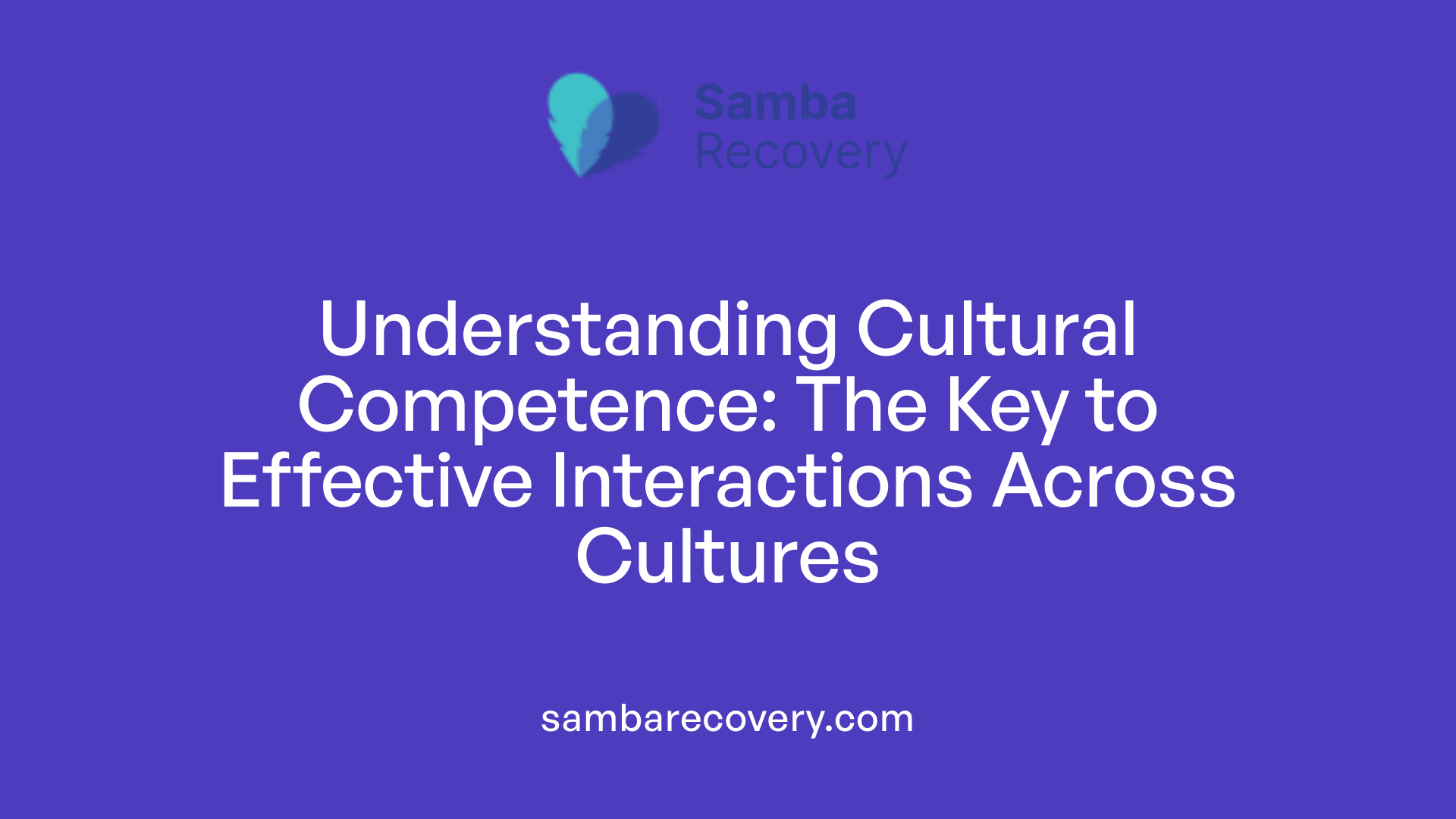
What is cultural competence?
Cultural competence is the ability to understand, appreciate, and effectively interact with individuals from diverse cultural backgrounds. This expertise is essential in various domains, particularly in healthcare, where providers must cater to a wide array of beliefs, languages, and health practices.
The concept includes a set of behaviors, attitudes, and policies that enable practitioners to foster effective working relationships across cultural boundaries. It emphasizes the importance of valuing diversity, conducting self-assessments to identify personal biases, and adapting practices to meet the unique cultural needs of individuals and communities.
Core elements of cultural competence
Key components of cultural competence are:
- Awareness: Recognizing one’s own cultural identity and how personal biases affect interactions.
- Knowledge: Understanding different cultural practices and health beliefs relevant to patient populations.
- Skills: Developing effective communication strategies that demonstrate respect for cultural differences.
- Attitude: Fostering a willingness to learn from others and adapt care practices accordingly.
Cultural competence is a developmental process, progressing on a continuum that helps individuals and organizations improve their interactions and the quality of services they provide. Ultimately, it enhances relationships, promotes respect, and leads to better health outcomes.
The Critical Importance of Cultural Competence in Healthcare
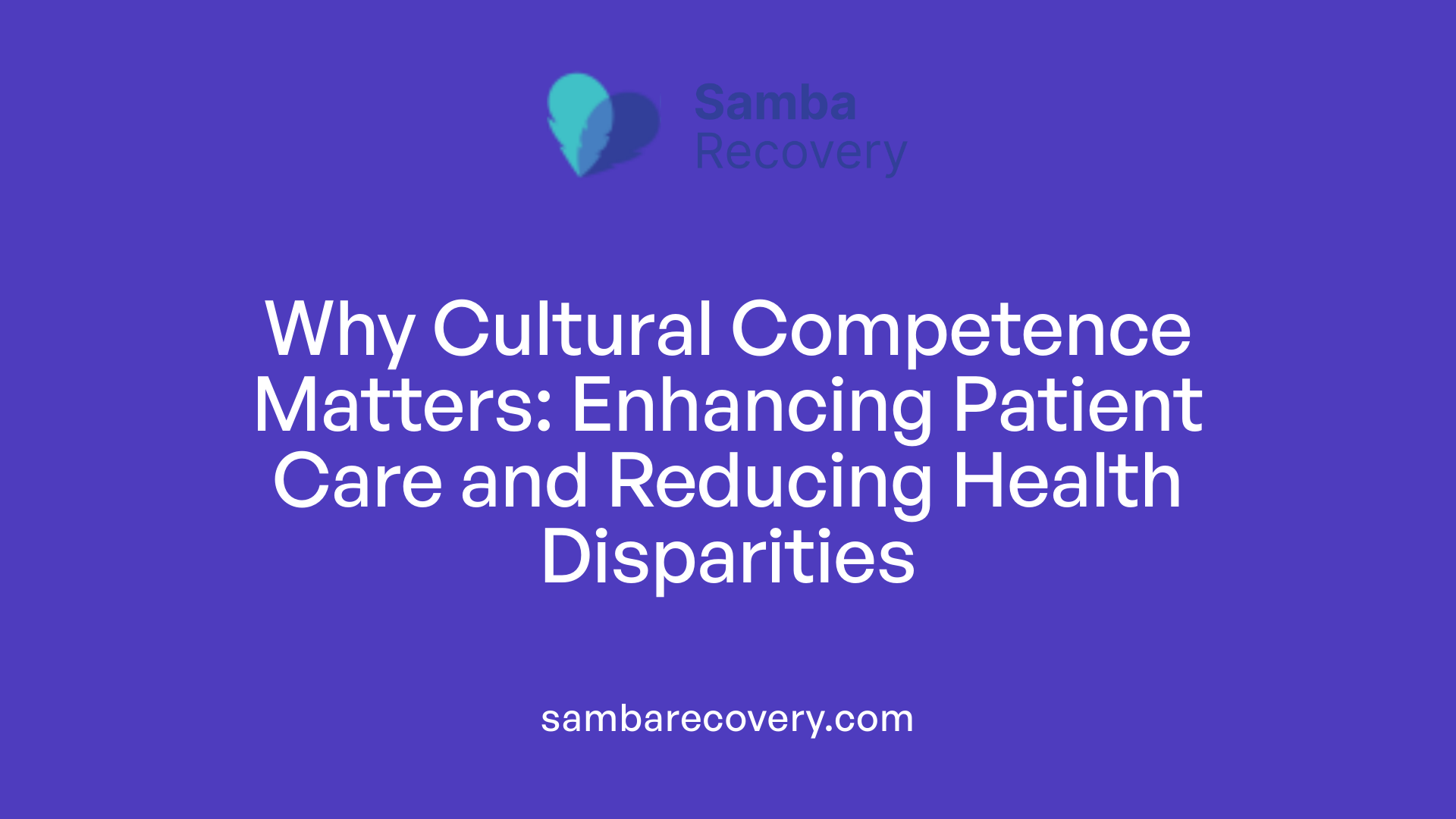
Why is cultural competence important in healthcare?
Cultural competence is crucial in healthcare because it enables providers to effectively address the diverse social, cultural, and linguistic needs of patients, leading to improved health outcomes. Racial and ethnic minorities often experience higher rates of chronic illnesses and greater health disparities, making it essential for healthcare systems to bridge these gaps.
Impact on patient outcomes
When healthcare providers are culturally competent, patients are more likely to feel understood and respected. This understanding fosters trust in medical relationships, often leading to better adherence to treatment plans and overall satisfaction with care. For instance, patients who interact with providers who share their cultural background tend to report better health experiences and outcomes. This connection is vital, especially for chronic conditions where knowledge and communication play significant roles.
Reduction of health disparities
Culturally responsive care significantly reduces health disparities among marginalized populations. Effective communication, tailored to patients’ cultural contexts, can minimize misunderstandings and misdiagnoses brought on by cultural differences. By systematically addressing these disparities, healthcare systems can ensure that minority groups receive equitable care and resources.
Importance of addressing language barriers
Language barriers are among the most significant challenges in delivering culturally competent care. Many Spanish-speaking patients, for instance, report difficulty accessing preventive services compared to their English-speaking counterparts. Hiring bilingual staff and providing interpretation services are vital strategies to overcome these obstacles. Furthermore, addressing low literacy levels, particularly among vulnerable groups like the elderly, enhances patients’ understanding of medical instructions, thereby improving compliance and health outcomes.
In summary, integrating cultural competence within healthcare practices is not just beneficial but essential for ensuring equitable care and improving health outcomes across diverse communities.
Cultural Competence in Mental Health Care
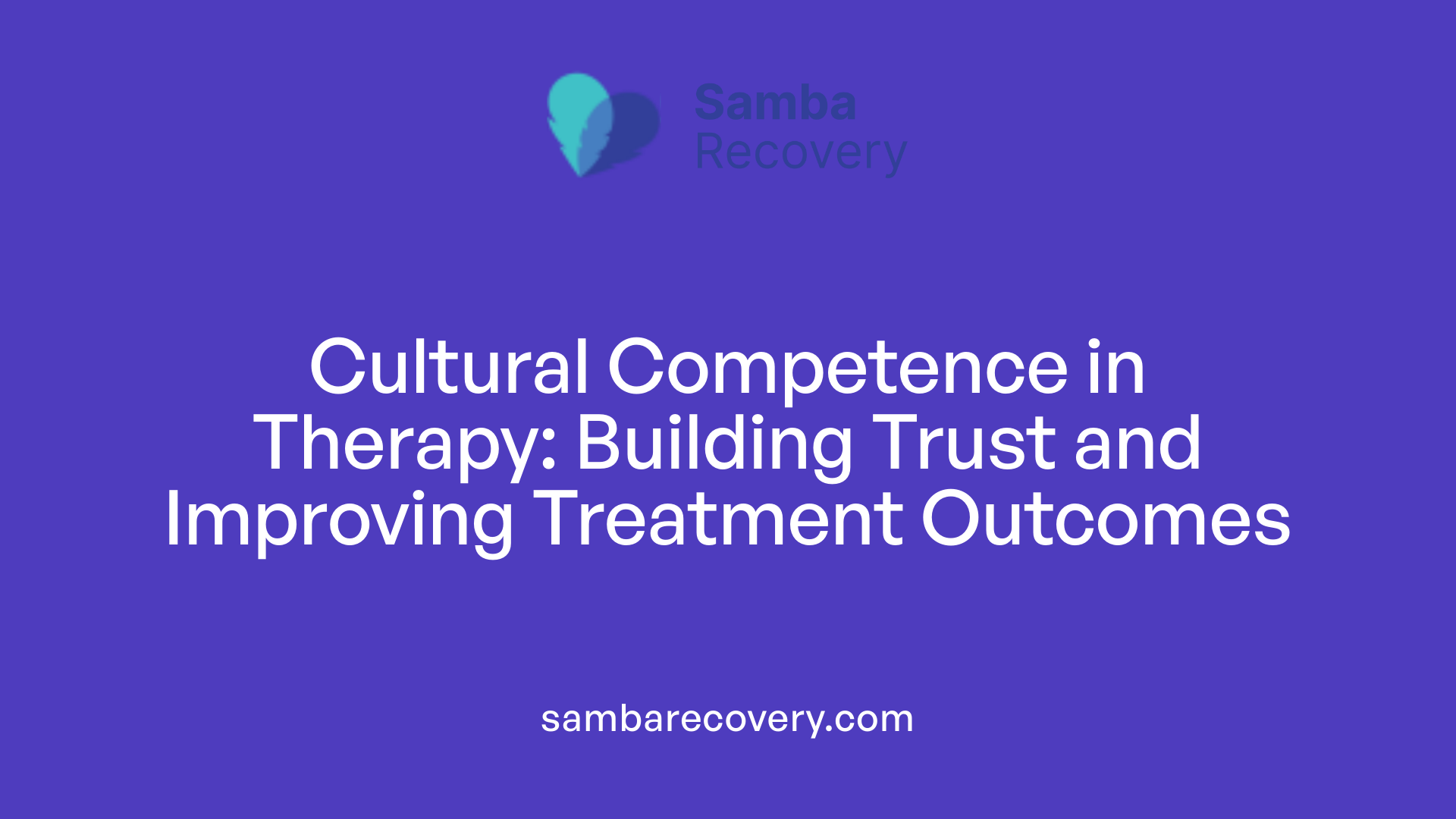
Why is cultural competence important in therapy?
Cultural competence is essential in therapy because it fosters a therapeutic alliance where clients from diverse backgrounds feel safe, respected, and understood. This sense of connection enhances the overall effectiveness of treatment.
As the U.S. becomes more diverse, with racial and ethnic minority communities projected to constitute over half the population by 2044, the need for culturally competent mental healthcare has skyrocketed. However, at present, only 17% of psychologists belong to minority groups, creating a significant representation gap in the field. This lack of diversity can lead to misunderstandings, where providers may inadvertently invalidate clients’ experiences or misdiagnose mental health conditions.
Expressions of mental health symptoms vary widely across cultures, and without adequate cultural understanding, mental health professionals may struggle to provide appropriate care. Training in cultural competence is increasingly recognized as a requirement for many clinicians, reinforcing its role in delivering effective and sensitive treatment. By integrating cultural competence into clinical practice, mental health professionals can ensure they address clients’ unique needs, resulting in improved patient trust and better treatment outcomes.
Addressing racial diversity in therapy
To effectively cater to clients from diverse racial backgrounds, therapists must not only acknowledge the cultural dynamics at play but also actively seek to understand them.
- Building Trust: Establishing a trusting relationship with clients is crucial. Therapists should engage in open dialogues about cultural beliefs and practices, ensuring clients feel valued.
- Cultural Adaptation of Treatments: Tailoring therapeutic interventions to reflect clients’ cultural contexts enhances relatability and effectiveness. Studies have shown that culturally adapted therapies yield better results, particularly for ethnic-minority clients.
- Ongoing Learning: Therapists need to commitment to continual education about cultural competence, including self-reflection on their biases and embracing the nuances of various cultural identities.
Cultural competence in mental health care is not just beneficial for clients; it plays a critical role in bridging gaps in understanding and ultimately improves the overall quality of mental health services provided.
Cultural Competence in Addiction Treatment
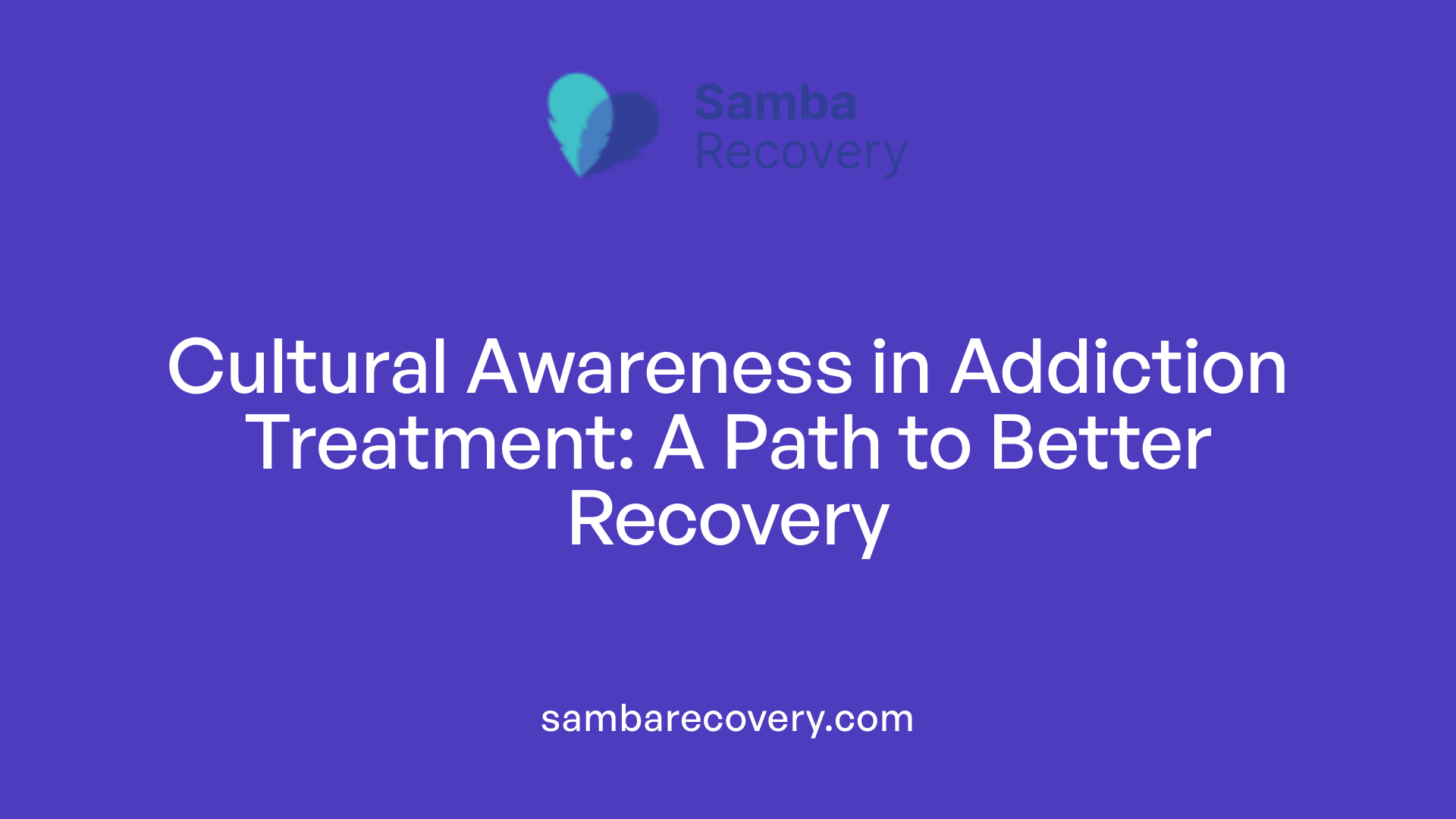
How does cultural competence impact addiction treatment?
Cultural competence plays a crucial role in enhancing addiction treatment effectiveness. By embracing and understanding the unique cultural identities of clients, counselors can create personalized treatment plans tailored to individual needs. This individualized approach cultivates trust and empathy within the therapeutic relationship, which is essential for successful recovery.
Counselors who are culturally competent are better equipped to navigate barriers that clients may face in addiction recovery, such as stigma and language difficulties. For instance, if a counselor recognizes the cultural significance of certain beliefs or practices, they can incorporate these elements into treatment, increasing engagement and compliance.
Continuous education and self-reflection are key components in bolstering a counselor’s cultural competence. By regularly assessing their own biases and expanding their knowledge about different cultural practices, counselors can offer more nuanced and effective care.
Additionally, collaborating with community resources that resonate with the cultural backgrounds of clients enriches treatment options, providing essential support systems. Overall, culturally competent practices enhance treatment engagement and outcomes, leading clients on a more successful path to recovery from substance use disorders.
Enhancing Cultural Competence in Healthcare Settings
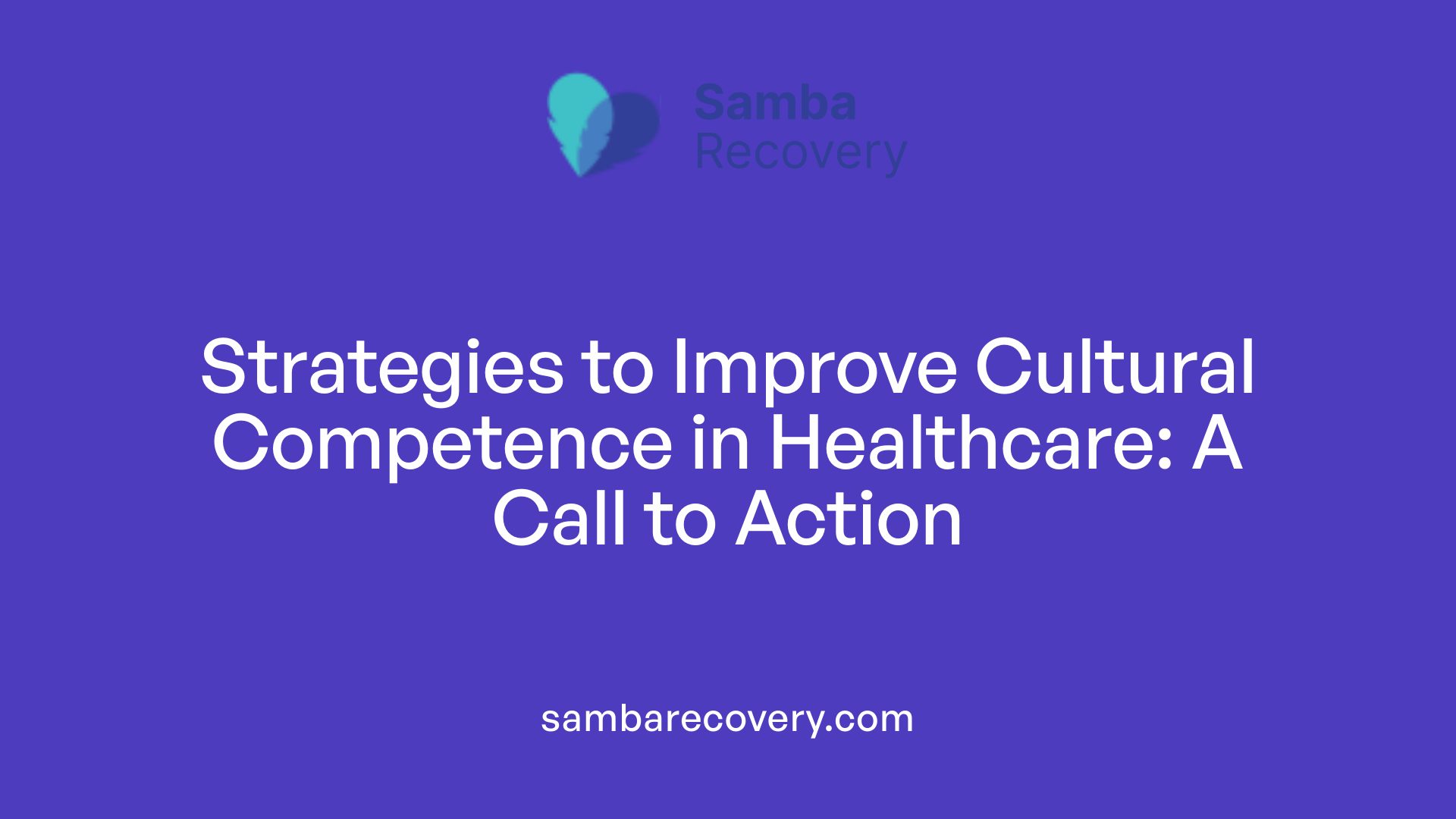
How can cultural competence be improved in healthcare?
Cultural competence in healthcare can be improved through several strategic approaches. One effective method is to implement cultural competence training for healthcare providers. This type of training enhances their ability to communicate and respond effectively to the diverse cultural needs of patients.
Additionally, recruiting and retaining a diverse healthcare workforce is vital. A workforce that reflects the community it serves can lead to deeper understanding and better interactions with patients from varied cultural backgrounds.
Providing interpreter services is another crucial component for overcoming language barriers, ensuring quality care for non-English speaking patients. This assistance is vital, particularly in emergency situations where effective communication can significantly impact patient outcomes.
Moreover, healthcare organizations should actively involve community members in service planning and utilize data on race, ethnicity, and language preferences. By tailoring services to meet specific community needs, organizations can effectively reduce disparities in healthcare access and quality.
Key Strategies for Improving Cultural Competence in Healthcare
| Strategy | Description | Impact |
|---|---|---|
| Cultural competence training | Enhances the provider’s ability to meet diverse cultural needs. | Improves communication and care effectiveness. |
| Diverse healthcare workforce | Reflects the community, fostering understanding and trust. | Increases patient satisfaction and engagement. |
| Interpreter services | Addresses language barriers, ensuring clear communication. | Enhances care quality for non-English speakers. |
| Community involvement | Engages local perspectives in healthcare planning, utilizing demographic data to guide services. | Reduces disparities and improves access. |
These strategies collectively contribute to a more equitable healthcare system. By addressing cultural differences and social factors, organizations can foster better relationships with patients, ultimately leading to enhanced health outcomes.
Illustrative Examples of Cultural Competence in Action
What are examples of cultural competence in healthcare?
Cultural competence in healthcare can be effectively illustrated through several practical applications that address diverse patient needs. A fundamental example is the provision of language interpreters. This service is essential for patients who speak different languages, ensuring that they can understand their diagnosis and treatment options clearly.
Another example is tailoring dietary recommendations to respect and adhere to patients’ cultural backgrounds. For instance, healthcare providers might consider cultural dietary restrictions when recommending meals, especially for patients adhering to specific religious practices.
Moreover, integrating spiritual leaders into healthcare teams helps bridge the gap between healthcare and religious beliefs. This inclusion can be pivotal in addressing prayer and spiritual needs, fostering an environment where patients feel respected and understood.
Creating multi-denominational prayer spaces within healthcare facilities reflects the importance of spiritual well-being for different patient populations. Such spaces encourage patients to engage with their beliefs, promoting mental and emotional health.
Employing healthcare professionals from various cultural backgrounds brings diversity to patient care. This strategy is not only beneficial for understanding cultural nuances but also fosters a more inclusive environment for marginalized communities.
Furthermore, conducting cultural assessments during patient check-ins facilitates personalized care plans that resonate with individual beliefs and values, significantly enhancing patient satisfaction and compliance with treatment plans.
Engaging in continuous self-reflection and cultural competence training allows healthcare providers to recognize and mitigate their biases, improving interactions with patients from diverse cultural backgrounds. By implementing such practices, the healthcare system can move toward a more equitable and empathetic approach to patient care.
Cultural Competence: Beyond Healthcare
Why is it important to understand cultural competence?
Understanding cultural competence is crucial for fostering effective communication and interaction with diverse individuals, which is essential in today’s globalized workforce. Effective interactions are key to building and maintaining strong relationships with partners, suppliers, and colleagues from a wide range of backgrounds.
Businesses operating in industries such as travel and tourism benefit significantly from cultural understanding. A workforce adept in cultural competency can smoothly navigate interactions, facilitating better engagement with clients and enhancing customer experiences.
Cultural competence exists on a continuum. As individuals advance through its stages, they become better prepared to handle cultural differences and challenges. Investing in better cultural competency leads to improved business outcomes. These include better talent acquisition and retention rates, as employers who prioritize cultural understanding typically create more inclusive workplaces. Moreover, increased awareness among employees leads to heightened customer satisfaction as services are tailored to meet diverse needs.
In summary, embracing cultural competence is not just an ethical responsibility; it also drives employee engagement, enriches team dynamics, and ultimately contributes positively to an organization’s bottom line.
Overcoming Barriers to Cultural Competence
Challenges in healthcare settings
Cultural competence in healthcare is imperative for delivering effective care, yet several barriers exist that hinder its implementation. One significant challenge is the lack of diversity among healthcare providers, which can impede communication and trust between providers and patients from different cultural backgrounds. Furthermore, implicit biases and cultural insensitivity can lead to misunderstandings, misdiagnoses, and even inadequate treatment. Language barriers create additional hurdles, particularly for non-English speaking patients, who may experience difficulties in accessing preventive care and understanding medical instructions due to low health literacy.
Strategies for overcoming obstacles
To enhance cultural competence in healthcare, several strategies can be employed:
- Cultural Competence Training: Regular training sessions for healthcare staff can increase awareness of cultural differences and improve interactions with diverse populations.
- Hiring Multilingual Staff: Employing bilingual personnel can help bridge communication gaps and ensure patients feel understood.
- Utilizing Cultural Brokers: These intermediaries can assist in translating not just language but also cultural nuances between patients and providers.
- Community Engagement: Actively involving community members in healthcare planning fosters trust and allows for better understanding of patients’ unique needs.
By addressing these barriers with targeted strategies, healthcare systems can enhance their cultural competence, leading to improved patient outcomes and satisfaction.
Cultural Competence as a Tool for Equity in Healthcare
Addressing Disparities
Cultural competence plays a crucial role in addressing health disparities among marginalized communities. Racial and ethnic minorities often face barriers in accessing health care, resulting in poorer outcomes. For instance, statistics reveal that only 22.2% of Black adults report having a healthcare provider of the same race, compared to 73.8% of White adults. This lack of representation can significantly impact trust and the quality of care provided.
To tackle these disparities, healthcare professionals must enhance their cultural competence, understanding patients’ social, cultural, and linguistic needs. Community engagement is vital, as is the incorporation of practices like hiring multilingual staff and facilitating interpreter services. These strategies help bridge communication gaps and improve patient-provider relationships.
Cultural Competence as an Ethical Obligation
Cultural competence is increasingly recognized as an ethical obligation in healthcare settings. Professional organizations, including the American Psychological Association, emphasize its importance in providing equitable care to diverse populations. Health inequities persist, exacerbated by systemic biases and cultural insensitivity.
It is crucial for healthcare providers to reflect on their own implicit biases and strive for continuous development in this area. Adopting culturally competent practices can foster trust, enhance patient satisfaction, and improve overall treatment outcomes. Training programs focused on cultural competence prepare healthcare professionals to meet the unique needs of varied patient populations effectively.
Embracing Cultural Competence for Better Care
Cultural competence is not just a theoretical concept but a practical necessity in today’s diverse world. By adopting culturally competent practices, healthcare providers can improve health outcomes, reduce disparities, and ensure that all patients receive the quality care they deserve. As the cultural landscape of societies continues to evolve, understanding and integrating cultural competence into healthcare and beyond is essential for fostering equity, respect, and mutual understanding in every patient interaction. By persistently addressing the challenges and barriers, the healthcare system can embrace cultural competence as a cornerstone of ethical and effective patient care, truly reflecting the diversity of its clientele.
References
- Cultural Competence in Health Care: Is it important for people with …
- Practicing Cultural Competence and Cultural Humility in the Care of …
- The Importance of Cultural Competency in Healthcare | PPL First
- The importance of Culturally Competent Care
- Why is Cultural Competence Important in Mental Health Care?
- [PDF] Improving Cultural Competence Quick Guice for Clinicians
- How to Improve Cultural Competence in Health Care






